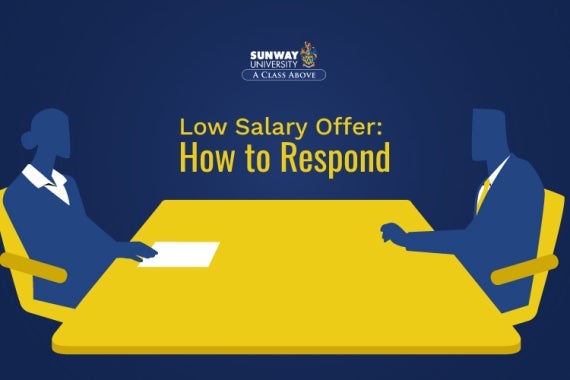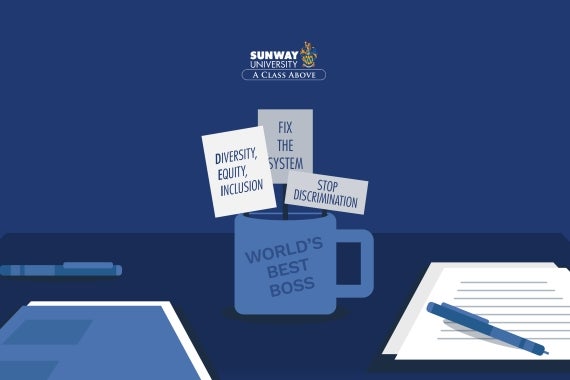Important Career Influences: What Shapes Your Career Choices?

At different life stages, the question of career choice holds varying weight; as we grow older, the complexity of career decision-making tends to increase.
For students in college, this question can be a confusing one. Choosing the right career path can even be downright daunting, requiring an array of applications, including knowledge, skills, and experience. Therefore, good career planning is essential for life fulfilment, stability, and job satisfaction.
However, despite any level of planning, many factors can still influence your career choices. These can be grouped into extrinsic, intrinsic, and interpersonal factors.

Extrinsic Factors
1. Financial Compensation
When it comes to choosing a career path, financial rewards are a major factor. Undoubtedly, the desire for a lucrative income is a valid consideration for many. Given this, some individuals may gravitate towards higher-paying professions due to economic incentives.
2. Professional Prestige
Many individuals strive for more than a hefty pay cheque in their professions. The desire for recognition and admiration plays a significant role in their pursuit of success. Achieving a high level of prestige can greatly enhance their overall well-being and status within their community.
3. Job Security
In a survey by talent agency Randstad, 60% of Malaysian respondents reported that they are worried about losing their jobs amid the challenging economic landscape. Without job security, workers can end up feeling anxiety and stress.
Other extrinsic or external job factors can include job prospects, non-salary benefits, and work-life balance.

Intrinsic Factors
1. Personal Interests
Personal preferences and personality tend to be major determining factors when choosing a career. Certain personality traits are more likely to choose specific careers – for example, introverted individuals may prefer careers that allow them to work independently, while extroverted individuals may prefer careers that involve working with others. Not being able to match between personality type and careers can often lead to disappointment and tension.
2. Gender
Gender can also play a role in career choices. Men and women may be socialised differently and may have different expectations placed on them. For instance, women may be encouraged to pursue careers in traditionally female-dominated fields, while men may be encouraged to pursue careers in traditionally male-dominated fields. This can manifest itself in the career choices made.
3. Career Development
Career development is an ongoing process that involves exploring your interests, skills, and values, and identifying potential career paths. It is important to take an active role in your career development and to seek out opportunities for growth and development. Having this built into a job will make the job more attractive to some.
Level of competency and previous experiences cannot be discounted when discussing intrinsic factors. They may even add to or limit the choices a person can make in picking a career.

Interpersonal Factors
1. Role Models
Role models can also influence your career choices. Seeing someone you admire succeed in a particular career can inspire you to pursue a similar path. It is important to note that role models can come from a variety of sources, including family members, friends, and public figures. Of these figures, parents play the biggest role in deciding the paths that job seekers take.
2. Social Learning and Multicultural
People from diverse cultural backgrounds may face unique expectations when it comes to choosing their career paths. Their professional choices can greatly differ, depending on whether they come from an individualistic or collectivist culture. Those who come from individualistic cultures may prioritise personal goals and individual success, whereas those from collectivist cultures may place a greater emphasis on contributing to their community or family.
3. Social Impact and Social Responsibilities
Individuals may choose careers that allow them to positively impact society, such as working in non-profit organisations or the public sector. Many feel a strong desire to make a positive difference in the world around them, and as a result, they may seek careers that allow them to do just that. From working with non-profit organisations to serving in the public sector, there are countless opportunities to make a meaningful impact on the world through work.
These are just some examples of factors that come into play when choosing a career. Theories such as the Social Cognitive Career Theory suggests self-efficacy beliefs, outcome expectations, and goals are important variables in career development.
So, What’s Next?
Understanding the factors that influence career choices is only the first step in making the right decisions for yourself. The next step is to make an assessment of what are your top priorities in a career. Different factors may play multiple roles in your decision-making process, and knowing which factor is more important to you is crucial.
Following that, explore how you can get closer to your dream career. One way is to upskill and solidify your educational foundation. This is how Sunway University Online can help. With different master’s programmes to fit various career objectives, you will get a world-class education right at your fingertips.
Schedule a call with our Education Counsellors or visit our website today for more information on our programmes made for 21st-century career advancement.





